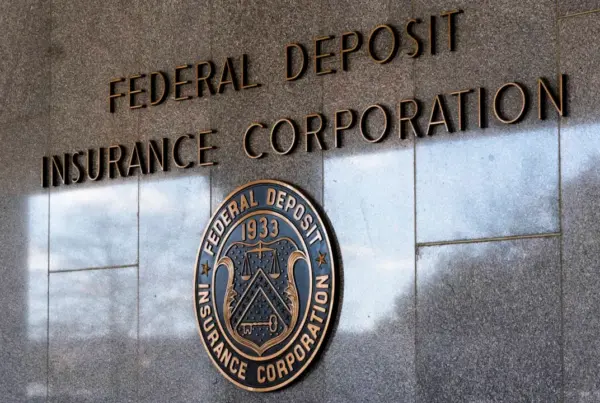“`html
FDIC’s Proposed Rule on Brokered Deposits: Key Insights for Financial Institutions
Introduction
On July 30, 2024, the Federal Deposit Insurance Corporation (FDIC) announced a proposed rule aimed at updating regulations surrounding brokered deposits. This proposal is significant as it seeks to address the evolving nature of deposit-taking practices in the financial sector, particularly in light of the increasing involvement of technology-driven financial services. The FDIC’s action is a response to concerns regarding the stability and risk management of financial institutions that heavily rely on brokered deposits, which can be volatile and pose systemic risks during economic downturns.
Key Regulatory Changes & Analysis
1. Expansion of the Definition of Deposit Broker
The proposed rule broadens the definition of a deposit broker to encompass a wider range of entities that facilitate the placement of deposits with insured depository institutions.
- Comparison to Previous Rule: The previous definition primarily included traditional brokers. The new definition captures fintech companies and other intermediaries that play a role in deposit placement.
- Impact: This expansion means that more entities will be subject to regulatory scrutiny, necessitating compliance adjustments for banks and fintech firms.
2. Enhanced Reporting Requirements
Under the proposed rule, institutions accepting brokered deposits will face stricter reporting requirements.
- Key Provisions:
- Institutions must maintain comprehensive records of brokered deposits, including the identity of brokers and the terms of deposits.
- Enhanced due diligence practices are mandated to ensure brokers comply with safety and soundness standards.
3. Increased Regulatory Oversight
The FDIC plans to intensify its oversight of deposit brokers, focusing on ensuring that these entities do not engage in practices that could undermine the stability of the banking system.
- Operational Changes: Affected institutions may need to implement new compliance frameworks to monitor broker activities effectively and mitigate risks associated with brokered deposits.
Legal and Industry Implications
The proposed regulatory changes will likely impose significant compliance burdens on financial institutions, including:
- Financial Costs: Institutions may incur costs related to the development of new compliance systems and training for staff on the updated requirements.
- Operational Adjustments: Banks and fintech companies will need to revise existing contracts and operational protocols to align with the new regulatory landscape.
Potential legal challenges may arise as stakeholders assess the implications of the expanded definition of deposit brokers. Institutions should remain vigilant regarding enforcement actions and administrative law considerations that could impact their operations.
Recommended Actions & Compliance Strategies
To effectively navigate the proposed rule, financial institutions should consider the following actions:
- Review Compliance Programs: Institutions should evaluate their current compliance frameworks and make necessary adjustments to accommodate the expanded definition of deposit brokers.
- Engage in Public Comment: Stakeholders are encouraged to participate in the public comment period to voice concerns and influence the final rule.
- Monitor Key Deadlines: Institutions must be aware of compliance deadlines and any regulatory filings required under the proposed rule.
Best Practices for Compliance
- Update Contracts: Revise contracts with brokers to reflect new regulatory requirements.
- Implement Training Programs: Ensure staff are trained on the new compliance obligations and risk management practices.
Conclusion & Next Steps
The FDIC’s proposed rule on brokered deposits represents a significant shift in the regulatory framework for financial institutions. As the implementation timeline unfolds, institutions must prepare for compliance with the new requirements and anticipate further regulatory developments. Given the controversial nature of these changes, potential legal or legislative actions may arise, impacting the enforcement of the proposed rule. Financial institutions should remain proactive in their compliance strategies to mitigate risks associated with these regulatory changes.
By staying informed and engaged, banks and fintech companies can better navigate the complexities of the evolving regulatory environment and ensure adherence to FDIC regulations.
“`


